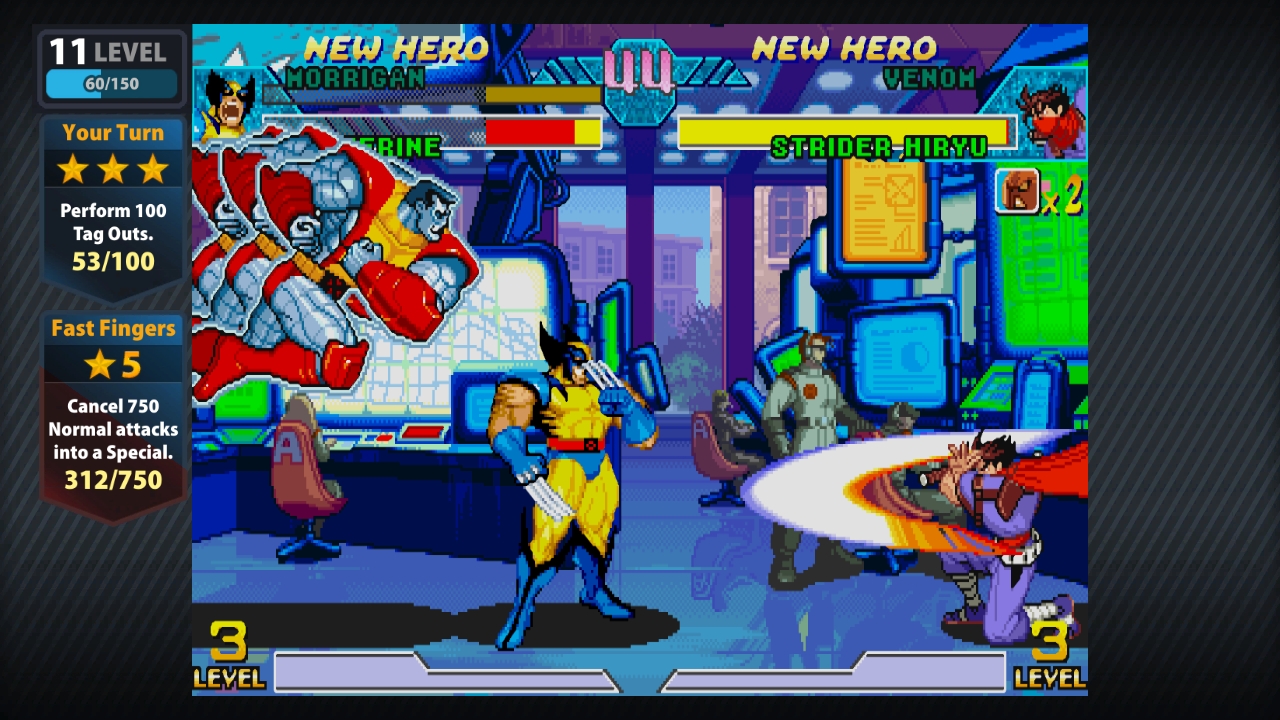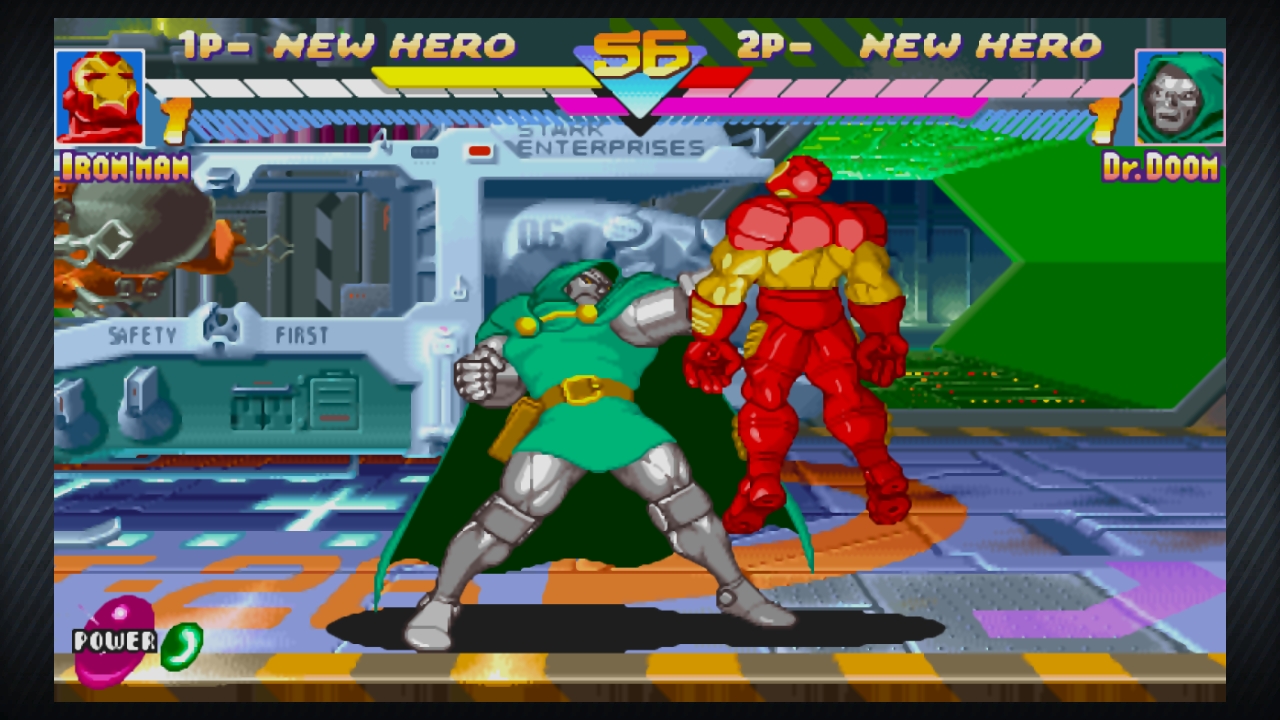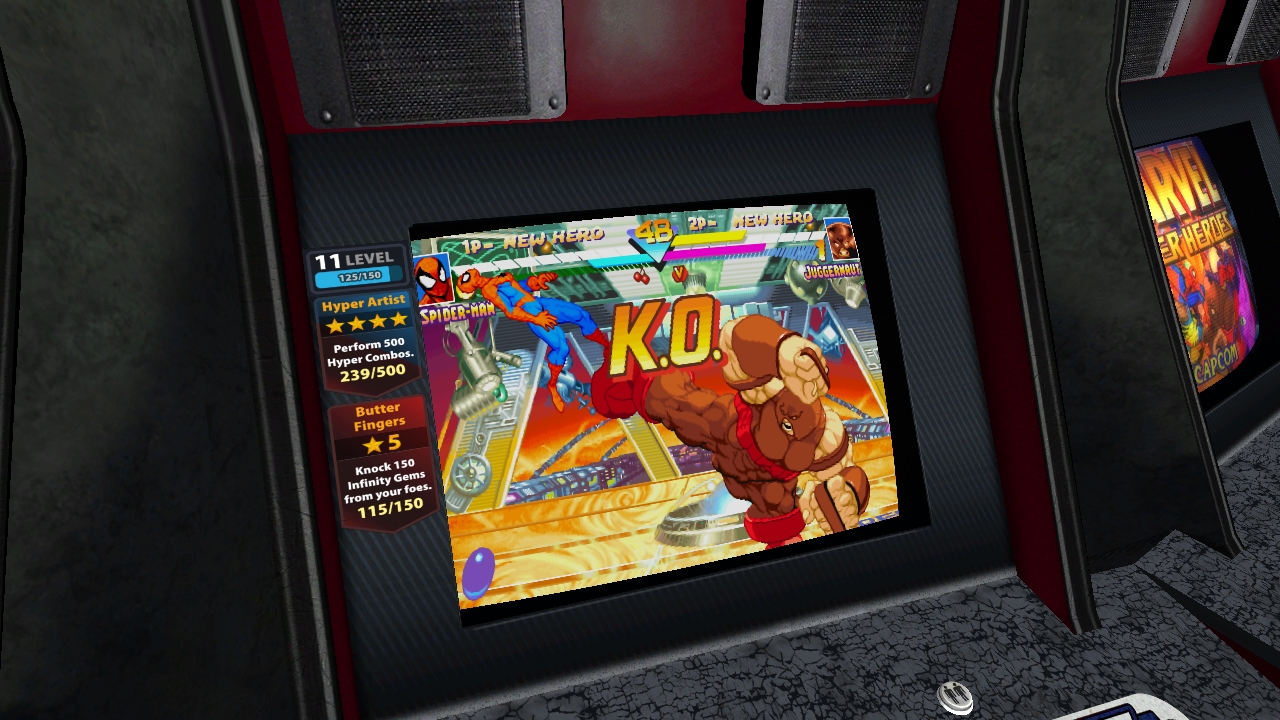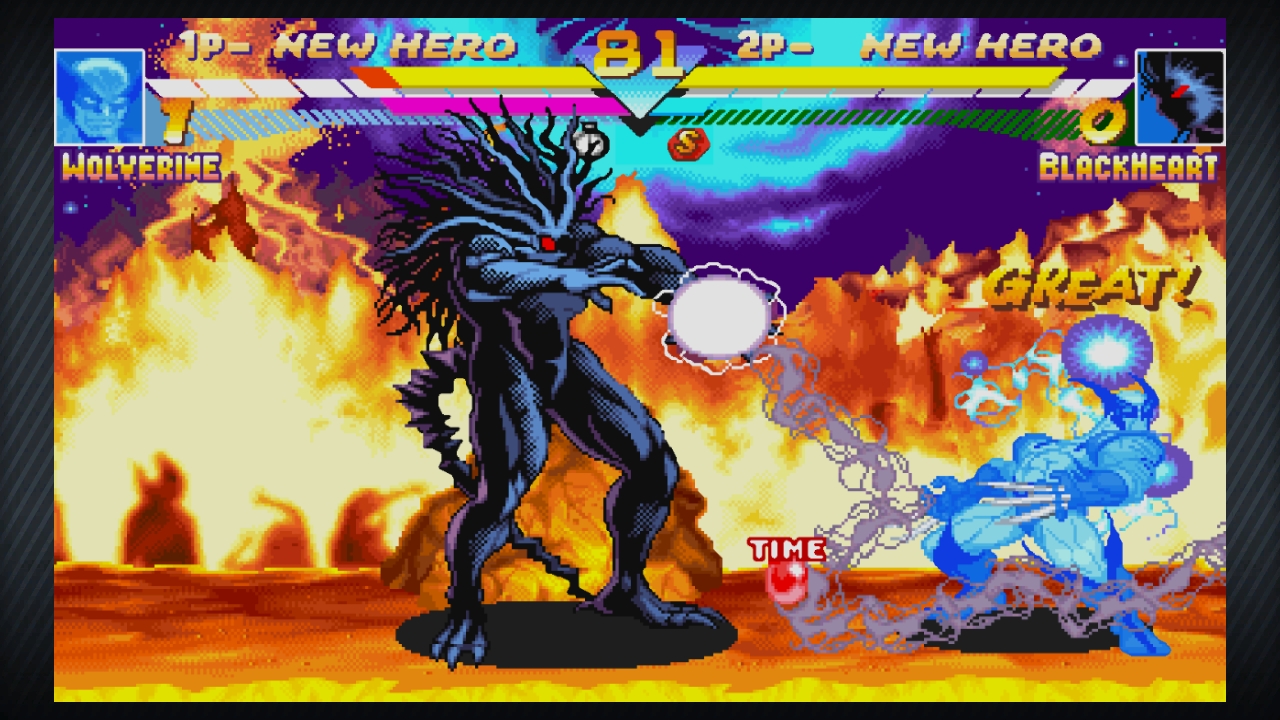 PLATFORM: XBox Live Arcade, Playstation Network
PLATFORM: XBox Live Arcade, Playstation Network
PRICE: $14.99/1200 MS pts
ESRB RATING: T
DEVELOPER: Capcom
PUBLISHER: Capcom
Anybody remember, once upon a time, it was a virtual impossibility that Marvel vs Capcom 2 would ever see a re-release? The times, they have-a changed.
As it stands, not only did we get MvsC 2 re-released, but an MvsC3, and the now-obligatory disc-based update to that. So, I guess, it’s only right that Capcom go back to the roots one more time, in the form of Origins. Like any good look into one’s past, it’s rather surprising how far the series has come, and how far it really, really hasn’t. The only thing we can be certain of is that no one in these two games sings “Gonna Take You For A Ride”, and thank Christ for it, because Lord knows could use that shotgun shell for something useful instead of my speakers.

THE PITCH
Buncha Marvel guys beat up a bunch of Capcom guys. Somethin’ about origins, I guess.
THE PLAY
Im going to leave it to far more committed souls than mine to discuss whether Strider’s hitpoints were improved, or Soul Eraser’s been gimped, or some infinite combo Blackheart’s capable of has been removed, etc, etc. What can be said is that the game plays and feels very much like the games we played 10+ years ago. That’s a plus and a minus. The fidelity’s a plus. What we’re gaming on right now is the minus. Street Fighter 4 proved a while back that going from the 4 button setup back to 6 is a rude awakening waiting to happen, and once again, the flaws of the current controllers show themselves. Unless you have that snazzy new one with the retractable D-pad, the 360’s controller still absolutely eats it when it comes to the kind of precision this game needs; the damned slippery L2/R2 combo on the Sixaxis will always trigger aneurysms of the highest calibre when dealing with fighting games. Sure, you could buy one of those sweet 6-button SF4 pads, or a reasonable facsimile. See above, RE: commitment.

Still, if you’ve got the patience or the pad to power through, both games still feel as fluid as anything Capcom has ever done, with no discernible tinkering to be found with how moves or characters feel.
What surprised me, however, is how much I found myself glomming onto Marvel Super Heroes than MvsC. Granted, I didn’t spend nearly as much time with the former as I did the latter when they were in arcades, so there’s that. But where Marvel vs Capcom‘s usual controlled chaos was still fun, Marvel Super Heroes is satisfyingly subdued and pure in a way the Versus titles have never been, will never be. On top of that, I took for granted how unique the Gem system in that game really was at the time, and how the twists and turns they added to the gameplay brought on the kind of grins and evil glee the Versus games aim for and only achieve with the right combination of skill, character, and supers. I had to work to get the kind of joy out of MvsC that I did just going about business as usual in MSH. Could be that the simpler fighting system has an easier appeal, since my truly hardcore fighting game days are well behind me, and I play these things for the fuck of it more than any sense of perfection and skill-building these days, but it could very easily be that something got lost when the series started aiming for insanity. Even having said all that, I dont want to give the impression that MvsC is terrible, in any way. But it is surprising where my tastes have gone after all this time, and in just generally chatting with a few folks in between writing this, I’ve found, especially with older gamers, I’m not alone on this.

THE PRESENTATION
First and foremost, in a perfect world, Capcom would’ve tossed Children of the Atom, X-Men/Marvel Super Heroes vs Street Fighter in here, maybe even that kick-ass SNES side-scroller for shits and giggles. Part of me says that’s just greed talking, the other part says that, unlike Marvel Super Heroes (which got a damn decent Saturn release) and MvsC (Dreamcast 4 Life), those first three games never got their due on a home system. I’d have loved another crack at those, especially if we’re really talking “origins” here. But, I’m gonna set that gripe aside for the sake of the fact that what we did get are two better-than-arcade-perfect ports of Marvel Super Heroes, and Marvel vs Capcom, and the amount of love poured into both is considerable. The graphics options include Crisp and Smooth filters, the ability to kill scanlines, even a novelty option to view the game as if standing from angles of an arcade cabinet, and yes, you’re allowed to have a hollow chill at the fact that, chances are, anyone born after 1990 has no fucking clue what that even looks like.

Nothing fancy’s been done with the sound, but balance that against the Vault feature, which works a lot like how Mortal Kombat‘s Krypt does, with the typical capcom twist: Like in MvsC 3, you get Vault points for specific tasks in both games–tossing 500 projectiles, hitting with ice damage 10 times, finishing either game with zero continues–most of which do have Achievements/Trophies attached as well, and those points can purchase items in said vault. Most of its made up of concept art, but then you also buy opening videos, endings, and easy access to the secret characters in both games, which is a gift from Christ almighty for anyone who ever traveled to the arcade with half a crumpled sheet of notebook paper trying to go to the right boxes to unlock Carnage, only to waste 50 cents finding out that guy’s a piece of shit. They’ve also managed to port over a lot of the cool online functionality from Capcom’s last few fighting game titles that really is the gold standard of how to match up players as fluidly in and out as possible.
THE REPLAY
The same as every fighting game, really. Long as there’s someone to beat senseless, there’ll be a reason to replay. Past that, it’ll be fun to pull out every few months for cheap buzz.

THE VERDICT
Origins isn’t as comprehensive a return to roots as its name implies, but these two are strong examples of why this series will always have its charms. The Marvel universe has never been in better adaptive hands than it was with Capcom, and this is a solid way of seeing that was the case long before they learned to count to 3.
Remember when Capcom used to have a problem with that too? Yeah….





out of a possible 5 stars
